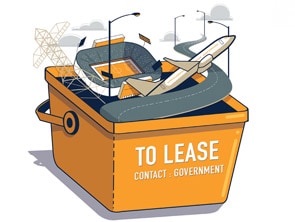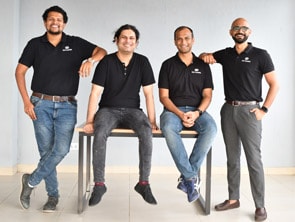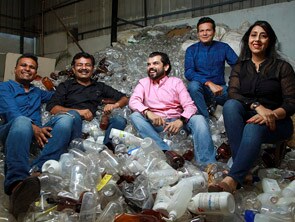Our top reads of the week
From the questions the National Monetisation Pipeline plan needs to answer to how air pollution is reducing the life expectancy of Indians and the frenzy around India's Olympic athletes, here are the


 Image: Shutterstock
Image: Shutterstock
Every week, catch up on the best long form stories from Forbes India. Often peppered with our binge-worthy podcasts, videos or infographics too.
 1) Promising future?
1) Promising future?
Finance Minister Nirmala Sitharaman announced the National Monetisation Pipeline (NMP) plan on August 23 to raise nearly Rs 6 lakh crore. Brownfield infrastructure assets across ministries will be given on long-term leases to private companies. The move raises questions about the maintenance of these assets, their accessibility to the population, and other legal and policy tangles. Here"s a stock of things as they stand. Read More
 2) When the curtain falls
2) When the curtain falls
Indian athletes and para-athletes are riding an unprecedented wave of public support which also includes a lot of prize money announcements. But what happens when the news cycle moves on to the next big thing? Former Olympians share their experience, what they did to get back on track once the attention fades away, and what India needs to do to ensure more podium finishes. Read More
 3) Lights. Camera. Spotlight
3) Lights. Camera. Spotlight
When it came to marketing, Indian cricket has always been a brand favourite. Now, change is coming, slowly but surely. Olympians such as Neeraj Chopra, PV Sindhu, Bajrang Punia, and Mirabai Chanu are the hot favourites of brands today, with their endorsement fees zooming up to 12X. Read More
Uber is prefered for the simplicity and ease of access. What if you had an Uber to take out your trash and dispose it with care? Recykal Marketplace, started by Abhay Deshpande and Co, is revolutionising the waste management industry in India. After all, garbage is a $100 billion business. Bringing the Internet and other digital tech to waste management, they aim to build an ecosystem that"ll destress the landfills and oceans. Read More
 2) Leap of faith
2) Leap of faith
Amrit Acharya, one of the co-founders of Zetwerk, has discovered that there is an opportunity in the unknown. When he left a cushy job with McKinsey, his father said, "I don"t want to introduce you as my unemployed son to any relatives." Acharya had to take the plunge into the unknown. Zetwerk was born. In three years, Zetwerk’s co-founders have taken the risk of this unknown and reaped the rewards of the opportunities they found. They are the latest unicorn on India"s startup block. How did they do it? Read More
 3) Market mania
3) Market mania
When pandemic started to hurt small business owners, investing in the share market became the hedge. Easy access was provided by apps such as Zerodha, and newcomers flocked. They are learning the tricks of the trade and investing not just for the future but also as a way to keep income coming in to tide over the pandemic slump. But experts advise caution and warn against getting carried away by short-term gains. Read More
 4) Chipping away
4) Chipping away
Did you know that India"s air pollution is significantly above the guidelines laid down by the World Health Organisation? And that the lifespans of people living in the most polluted states gets cut short by up to 10 years. But the bright side is that meeting WHO’s standards of pollution levels can reverse the trend. Watch Here
First Published: Sep 04, 2021, 10:00
Subscribe Now 1) One man’s trash…
1) One man’s trash…